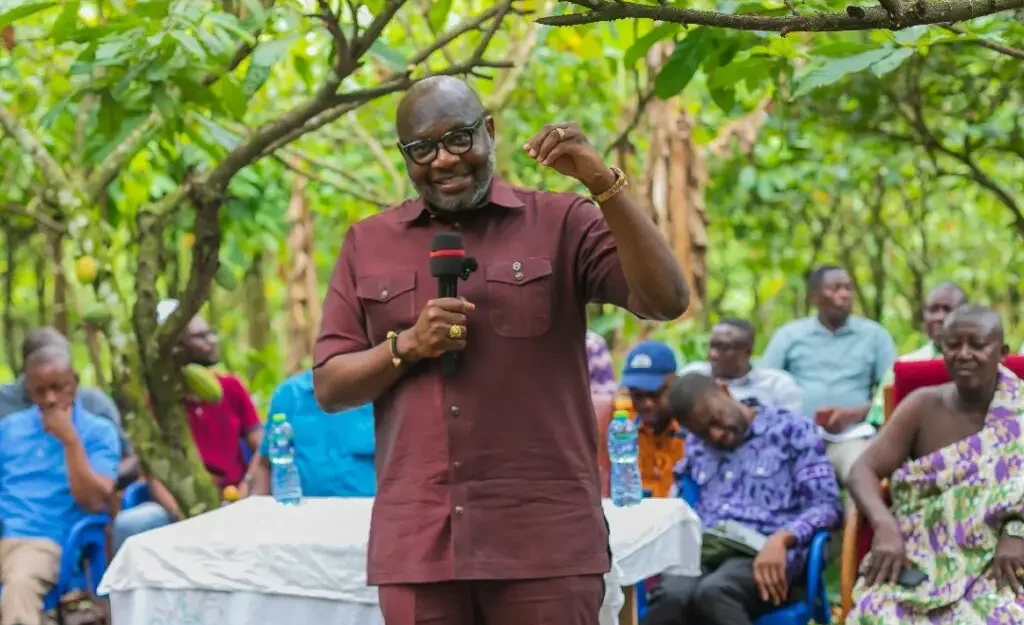The Chief Executive Officer of the Ghana Cocoa Board (COCOBOD), Dr. Ransford Anertey Abbey, has reiterated the organization’s dedication to enhancing the welfare of cocoa farmers, despite the numerous challenges facing the industry.
During a farmers’ rally at Attronso in the Sefwi Bekwai District, as part of his inaugural three-day tour of the Western North Region, Dr. Abbey revealed that discussions are ongoing to revise the producer price of cocoa for the 2025/2026 season. He emphasized that this review forms part of government’s broader strategy to boost the livelihoods of cocoa farmers and make cocoa farming more attractive to the youth.
“Even with our financial limitations, COCOBOD’s management is determined to offer farmers better prices for their cocoa,” he stressed.
Dr. Abbey also expressed concern over the aging cocoa farming population, warning that it poses a threat to the sector’s future sustainability. He highlighted the need to entice younger individuals into agriculture through the modernization and mechanization of cocoa farming.
“In collaboration with the Ministry of Agriculture, we are introducing advanced farming equipment to make cocoa cultivation more profitable and appealing to young Ghanaians,” he noted.
Addressing the impact of climate change, Dr. Abbey announced that COCOBOD will prioritize the installation of irrigation systems on cocoa farms to combat irregular rainfall patterns. He encouraged farmers to form cooperatives, explaining that collective farming would make the implementation of such projects more feasible.
“Providing irrigation to individual farms is too costly, especially with illegal mining (galamsey) depleting water sources. Cooperative farming offers a sustainable path forward,” he explained.
The COCOBOD boss also shared plans to amend current laws protecting cocoa trees to shield the sector from environmental threats, noting that a consultative approach involving all stakeholders is being adopted to strengthen crop protection legislation.
“Cocoa farming represents generational wealth. Strengthening legal protections for cocoa trees is crucial to curbing the damage caused by galamsey,” he emphasized.
Furthermore, Dr. Abbey assured farmers that fertilizers and agrochemicals would be supplied promptly and pledged to clamp down on any diversion of farming inputs.
“These inputs are secured through heavy investments to ease farmers’ burdens. Any misconduct or diversion will be swiftly addressed, and culprits will be held accountable,” he assured.
He concluded by calling on all stakeholders across the cocoa value chain to rally behind COCOBOD’s efforts to rejuvenate and sustain the sector.
Dr. Abbey was joined by senior members of COCOBOD management during the visit.

